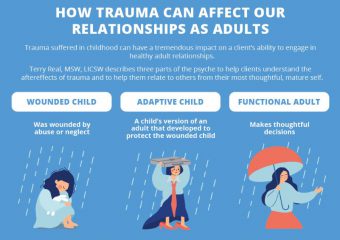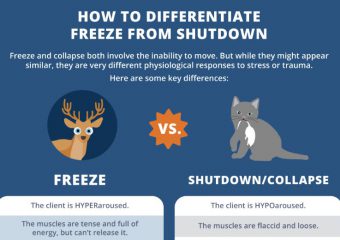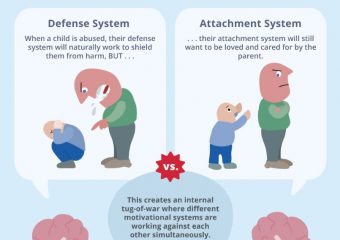Left untreated, childhood trauma can reverberate through adult relationships and make it difficult for your client to get close to other people. But Terry Real, MSW, LICSW has a way of thinking about the psyche that can help clients understand the aftereffects of trauma . . . . . . and help practitioners retarget their […]
[Infographic] How to Differentiate Between the Freeze and Shutdown Trauma Responses
The freeze and shutdown responses to trauma can resemble each other . . . . . . but they are very different in terms of what’s happening in your client’s brain, body, and nervous system. And that means they require different grounding strategies as well. In this infographic, we lay out some key cues to […]
[Infographic] Working with Structural Dissociation
One challenge of working with trauma is when a patient’s dissociated “parts” are operating independently . . . . . . or worse, they’re at odds with each other. This can be very distressing for the patient (and lead to a dysregulated nervous system). But the Structural Dissociation Model developed by Kathy Steele, MN, CS, […]
The Neuroscience of Mindfulness and Fear
When a client is afraid, there’s a practice that can help them stay grounded in the present . . . . . . instead of getting hijacked by panic and “worst-case scenario” thinking. And that practice is mindfulness. In the video below, Tara Brach, PhD will get into how mindfulness disrupts the neurobiology of fear, […]
Making a Nervous System “Menu” – a Tool for Your Clients
During the pandemic, your clients may be looking for answers to help them manage the uncertainty and stress of our “new normal.” And there’s no shortage of advice out there. The thing is, while some ideas are truly helpful, others may only heighten the discomfort. According to Deb Dana, LCSW, the key is to help […]




